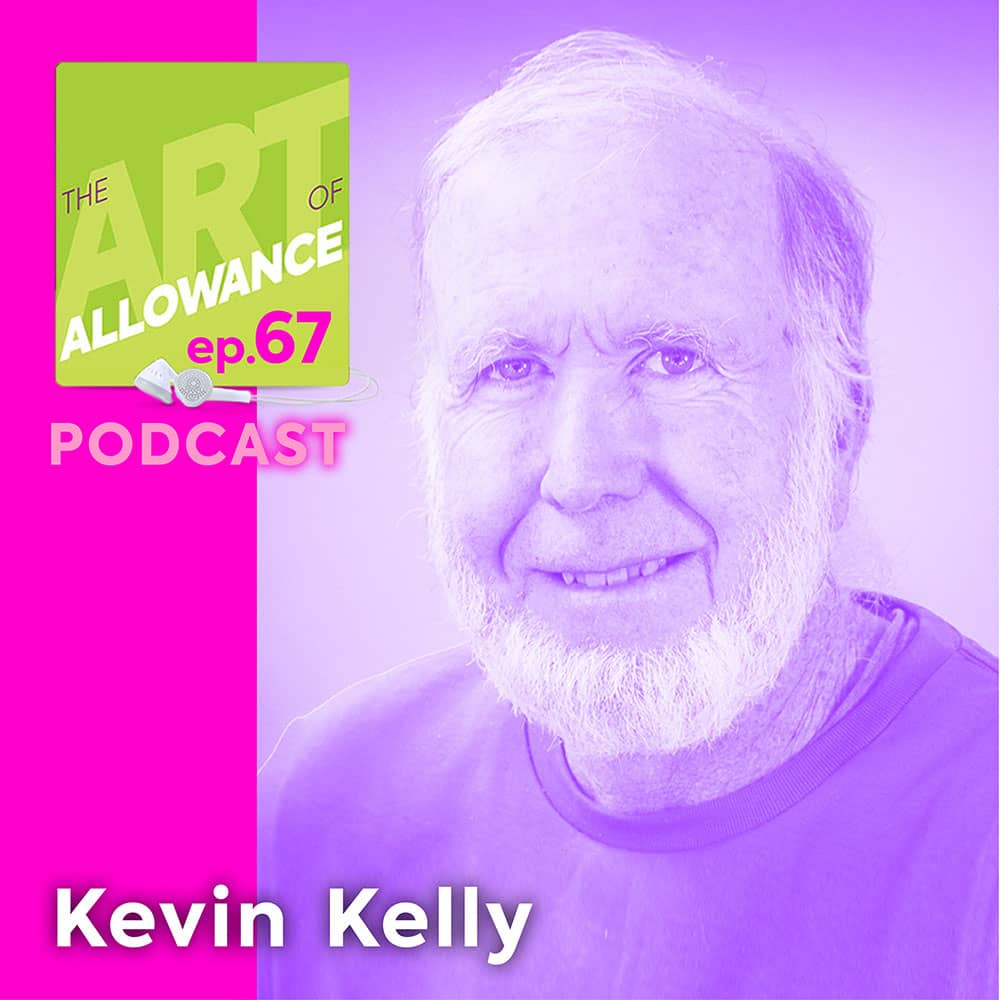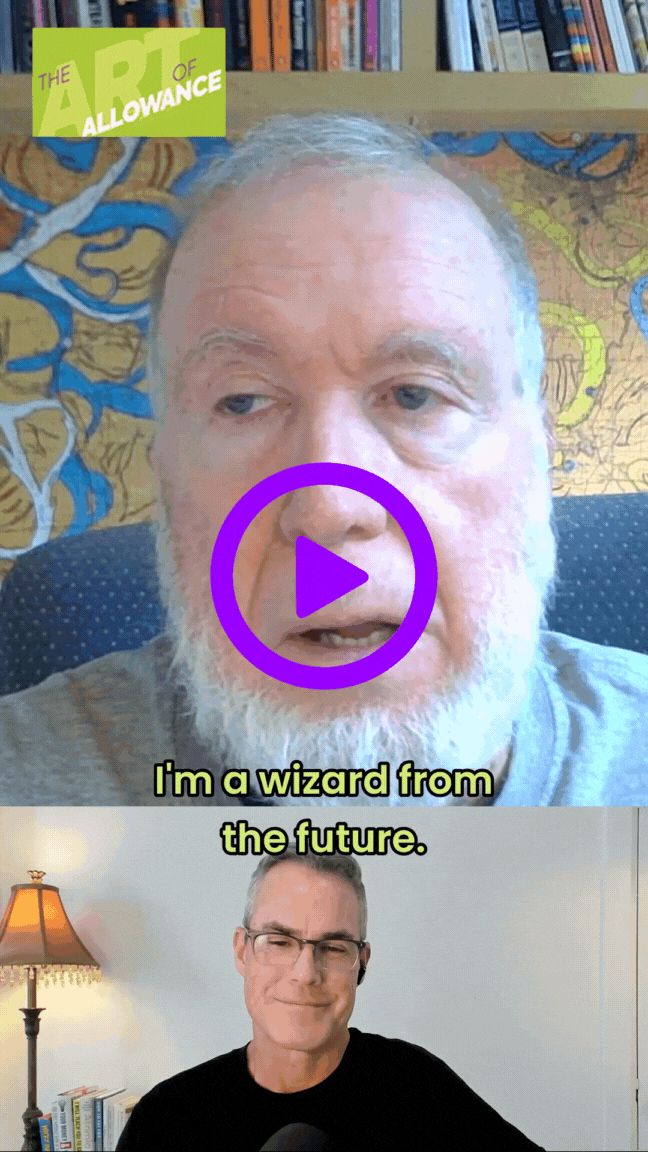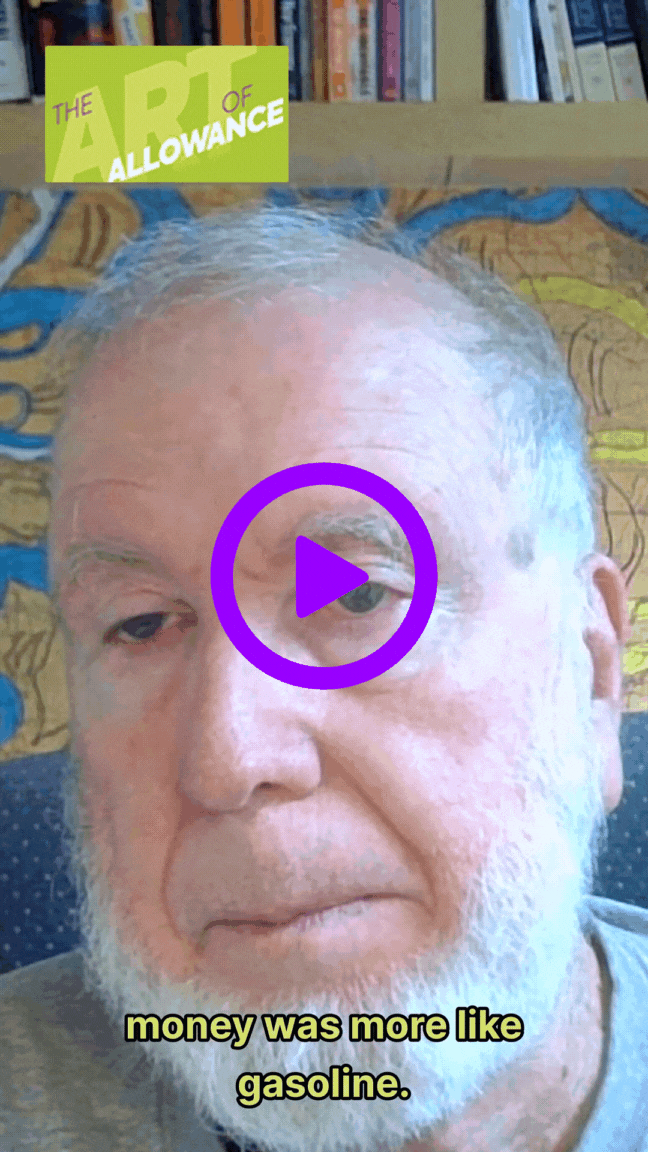|
In this issue: Kevin Kelly explains that dreams often aren’t that expensive, discusses how money is like gasoline and helps us understand the “generosity paradox.” “Working to help parents raise money-smart kids.” 3 Ideas to Share & Save Hello, friends! I hope you had a fun and festive holiday season. My wife and I just dropped off our younger daughter at college in Boston, and we’re on an Amtrak train to New Jersey to visit family. I’ve loved riding the rails for as long as I can remember. My unofficial motto is, “Any day on a train is a better day.” So, inspired by its clickety-clack, I’m excited to bring you my newest podcast conversation. I’m honored to speak with one of my intellectual heroes, Kevin Kelly. I hope you carve out time to enjoy this episode featuring a guy Tim Ferriss called the real-life “most interesting man in the world.” Kevin is a font of wisdom, and his most recent book, Excellent Advice for Living: Wisdom I Wish I’d Known Earlier, serves as a jumping-off point for much of our discussion. Kevin’s episode combines worldly wisdom and practical advice that I’ve already begun to share with my kids. So this week’s installment of “3 Ideas to Share & Save” features YouTube shorts from our conversation. If you like what Kevin says in these snippets, you’ll love our full discussion.
— 1 — Dream at a Discount: There’s a common myth that dreams require oodles of money. We tell ourselves, “If I had Jeff Bezos’ money, then I could do anything.” Yet the money we need to achieve our dreams is typically orders of magnitude less than we think. Kevin kicks off this conversation below:
Apple co-founder Steve Jobs said something similar on the Founders Podcast. I couldn’t locate the exact quote because host David Senra has done many episodes on Jobs. (I typically listen during my long runs, so I cannot take notes.) Still, here is the idea paraphrased: If you’re going to make something, then it doesn’t take more energy and rarely does it take more money to make it great. All it takes is a little more time and a willingness to persevere until it’s really great.
Can you imagine what happens when our kids (or we) internalize this lesson? — 2 — Gasoline-Powered Dreams: Kevin focused his money discussions and modeling around helping his kids adopt a proper practical perspective about the green stuff. In keeping with our work here at The Art of Allowance Project, he wanted his kids to understand that money was a means, not an end. He explains in this YouTube short:
The point of reading isn’t to collect books. The power of the internet isn’t harnessed by amassing likes and LMAO emojis. And, of course, the purpose of money isn’t to fill our bank accounts. Money is a tool we want our kids to wield to live fulfilling lives. Kevin’s kids are a bit older than mine, so a modernized analogy might include electric and not fossil fuel-powered vehicles. The point, of course, remains the same. As clean and futuristic as a Tesla station feels, it’s a stop and not a destination on the journey. — 3 — The Generosity Paradox: I closed last year’s final newsletter by talking about gratitude. Specifically, I mentioned the benefit of regularly journaling about how fortunate I am. It may have been the most helpful habit I adopted in 2023. It’s no wonder. I asked Kevin about gratitude and to elaborate on this quote from his book, Excellent Advice for Living:
“Perhaps the most counterintuitive truth of the universe is that the more you give to others, the more you’ll get. Understanding this is the beginning of wisdom.“
We discussed the “generosity paradox” in this YouTube short:
Kevin has even more to say about the exponential power of gratitude. So I hope you can make time to listen to our full conversation. I enjoyed going deeper on this subject and many others with Kevin. I think you’ll find his episode full of wisdom nuggets to chew on and solid, practical advice you can implement with your kids right now. Thanks again for joining me in 2024 as we continue our money-smart journey! As always, I hope you take time to enjoy it. John, P.S. Please consult with a financial or investment professional before making any decisions that might affect your financial well-being. View this email in your browser. Forwarded this email? Sign up here.
|






